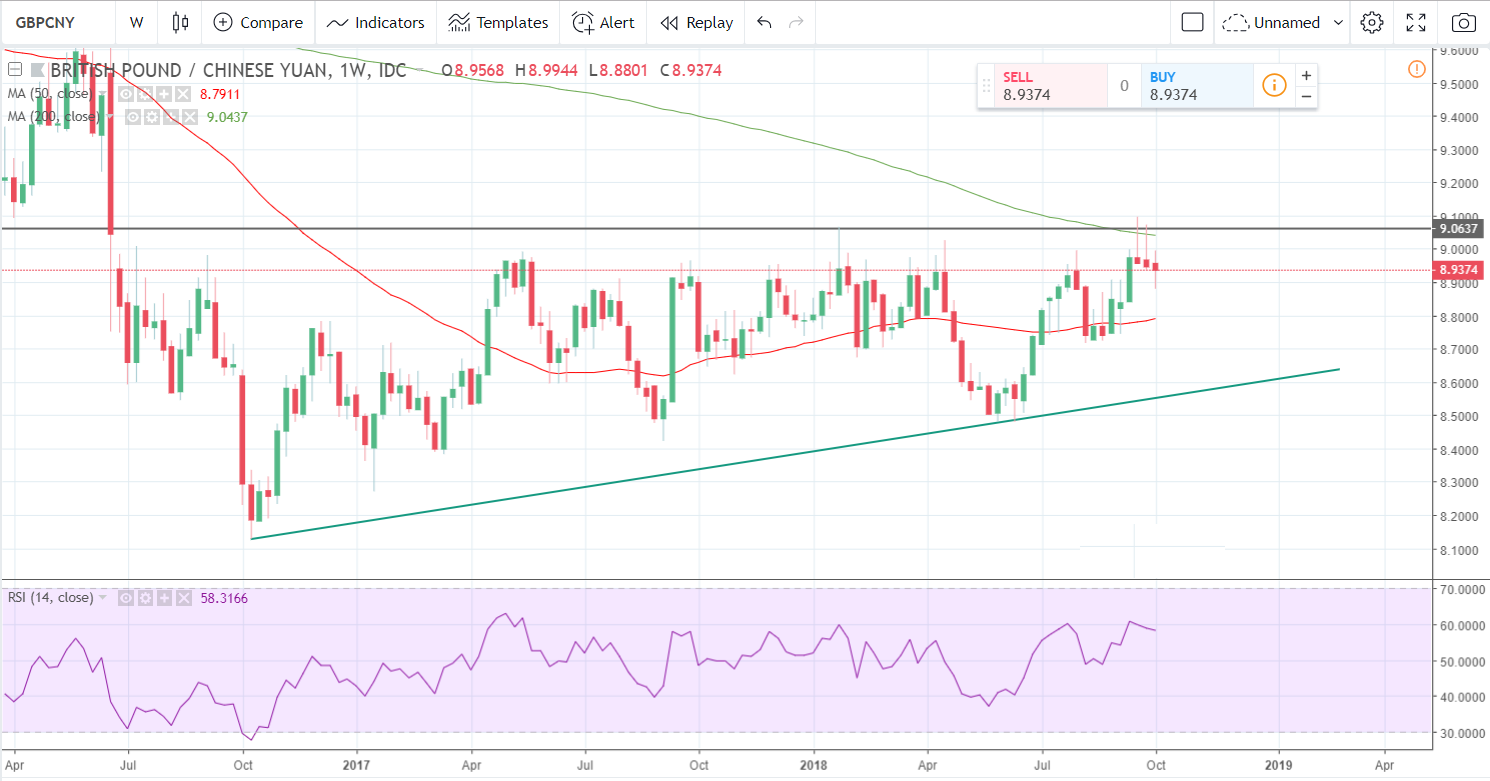Pound to Rise against Renmimbi in 2019 as China Devalues its Currency

© 孤飞的鹤, Adobe Stock
- Multiple factors pressure the Renminbi lower.
- 2019 likely to bring more losses as trade war bites.
- Authorities to allow more depreciation to offset tariffs.
The Renminbi is set to fall in 2019 as President Donald Trump's trade war against China impacts on the country's balance of payments and interest rate differentials, according to analysts at Deutsche Bank.
"I think the Renminbi will depreciate, probably depreciate more in 2019, because we think the trade war will get worse," says Zhiwei Zhang, an analyst at Deutsche Bank.
The White House is likely to widen the scope of its tariffs so that they encompass all of China's exports to the U.S., not just the $250bn already targeted.
This will probably reduce Chinese exports to the U.S. and lead to a larger current account deficit. The current account surplus had been falling for some time when it swung to a deficit in the first half of 2018.
The trend toward a deeper deficit is likely to get stronger in 2019. It is often the case that a wider current account deficit undermines a currency, because weaker exchange rates can compensate for a capital flows imbalance.

Above: USD/CNY rate shown at weekly intervals.
Current account balances provide a broad measure of capital flows into and out of a country, while also highlighting changes the extent to which a nation is reliant on funding from foreign investors. Trade deficits can contribute to a current account imbalance and so too can increases in borrowings from offshore investors.
China's new current account deficit is also likely to be adversely impacted by increased imports from other countries after Beijing decided to lift tariffs it previously imposed on goods bought from other countries, such as Indian soybeans. The move came after China increased tariffs levied on U.S. goods, including Soybeans, from 10% to 25%.
A week Renminbi is unlikely to be a problem for the Chinese authorities and the Peoples Bank of China (Pboc) is more likely than not to keep interest rates at their current level, further supporting a cheap currency, according to Zhang. Liquidity constraints in the Chinese financial sector are another reason for the PBOC to avoid raising interest rates.
"From a Chinese government perspective Renminbi depreciation is probably the best policy response at this stage. You have higher tariffs - which is a trade shock, you move your exchange rate," says Zhang.
China's currency is likely to come under further pressure because the gap between its interest rate and that of the U.S. Federal Reserve is likely to narrow in 2019.
The Federal Reserve is expected to raise rates 3 or 4 times in 2019, potentially taking the Federal Funds rate up to 3.25%, while China's collection of interest rates look set to remain steady. Interest rate differentials are the most significant driver of currency valuations.

Above: GBP/CNY rate shown at weekly intervals.
But it is not just the USD/CNY rate where the differential could become less advantageous for China. Rates may also increase in the Eurozone too, meaning the EUR/CNY may rise as well. In the case of GBP/CNY, the charts point to a key make or break level resting not far off last week's 9.0650 highs.
The above referenced level has seen multiple rejections over time and is a key threshold to watch for traders who are looking to take advantage of a depreciating Renminbi. A break above the 9.10 level would be required for us to confirm a breakout and movement higher into 'open ground'.
The 200-day moving average (MA) adds a further ceiling of resistance in the vicinity of 9.04. A breakout above both would probably see gains up to 9.50, perhaps even 9.75 for GBP/CNY.
Advertisement
Lock in Sterling's current levels ahead of potential declines: Get up to 5% more foreign exchange for international payments by using a specialist provider to get closer to the real market rate and avoid the gaping spreads charged by your bank when providing currency. Learn more here




